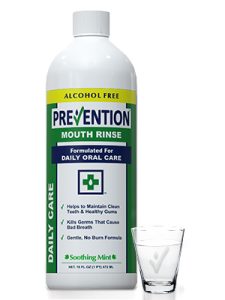
Tooth model for classroom education and in laboratory.
Introduction
Root canals are a common dental procedure that can save a severely damaged or infected tooth. Despite their reputation for being painful, root canals are actually a crucial treatment for maintaining oral health and preventing further complications. In this blog post, we will explore what root canals are, why they are necessary, and how they can help preserve your natural tooth.
What is a Root Canal?
A root canal is a dental procedure that is performed to save a tooth that has become infected or severely decayed. It involves removing the infected pulp from the tooth’s root canal, cleaning and disinfecting the area, and then filling and sealing it to prevent further infection.
Why is a Root Canal Necessary?
When the pulp of a tooth becomes infected or damaged, it can cause severe pain and discomfort. If left untreated, the infection can spread to the surrounding tissues and even lead to tooth loss. A root canal is necessary to remove the infection, alleviate pain, and save the tooth from extraction.
Signs You May Need a Root Canal
There are several signs that indicate you may need a root canal. These include:
- Severe toothache
- Sensitivity to hot or cold temperatures
- Tenderness or swelling in the gums
- Discoloration of the tooth
- Persistent bad breath
The Root Canal Procedure
The root canal procedure typically involves the following steps:
- Anesthesia: The dentist will administer local anesthesia to numb the area and ensure a pain-free procedure.
- Accessing the pulp: The dentist will create a small opening in the tooth to access the infected pulp and root canal.
- Removing the infected pulp: Using specialized tools, the dentist will carefully remove the infected pulp from the root canal.
- Cleaning and disinfecting: The dentist will clean and disinfect the root canal to remove any remaining bacteria or debris.
- Filling and sealing: Once the root canal is thoroughly cleaned, it will be filled with a rubber-like material called gutta-percha and sealed to prevent reinfection.
- Restoration: In most cases, a dental crown will be placed over the treated tooth to provide strength and protection.
Summary

Root canals are a dental procedure designed to save a tooth that has become severely damaged or infected. The procedure involves removing the infected pulp from the tooth’s root canal system, cleaning and disinfecting the area, and then filling and sealing it to prevent further infection. Contrary to popular belief, root canals are not painful due to modern anesthesia techniques. In fact, they are often the only alternative to tooth extraction, allowing you to keep your natural tooth and avoid the need for more extensive dental work like dental implants or bridges.
By undergoing a root canal, you can effectively eliminate the infection, alleviate pain, and restore the functionality of your tooth. This procedure not only saves your tooth but also helps maintain the overall health of your mouth. Ignoring the need for a root canal can lead to more severe oral health issues, such as abscesses, bone loss, and the spread of infection to other teeth.
Root canals are typically recommended when a tooth has deep decay, a cracked or broken tooth, or a severe infection that has reached the pulp. Signs that you may need a root canal include persistent toothache, sensitivity to hot or cold, swelling, and tenderness in the gums. If you experience any of these symptoms, it is important to consult with your dentist as soon as possible to determine the best course of action.
In conclusion, root canals are a vital dental procedure that can save your tooth and protect your oral health. By addressing the underlying issues causing pain or infection, root canals offer a long-term solution that allows you to maintain your natural look at this now smile. If you suspect you may need a root canal, don’t hesitate to reach out to your dentist for a thorough examination and appropriate treatment.
- Q: What is a root canal?
- A: A root canal is a dental procedure that involves removing the infected or damaged pulp from the inside of a tooth and then sealing it to prevent further infection.
- Q: Why would I need a root canal?
- A: You may need a root canal if you have a deep cavity, a cracked tooth, or an injury that has caused the pulp inside your tooth to become infected or inflamed.
- Q: How does a root canal save my tooth?
- A: By removing the infected pulp and sealing the tooth, a root canal eliminates the source of infection and prevents the need for tooth extraction, allowing you to keep your natural tooth.
- Q: Is a root canal a painful procedure?
- A: With modern techniques and anesthesia, root canals are typically not painful during the procedure. Some discomfort may be experienced during the recovery period, but it can be managed with over-the-counter pain medications.
- Q: How long does a root canal procedure take?
- A: The duration of a root canal procedure depends on the complexity of the case, but it usually takes one to two visits to complete. Each visit may last between 60 to 90 minutes.
- Q: What happens after a root canal?
- A: After a root canal, your dentist will place a dental crown or filling on the treated tooth to restore its strength and protect it from further damage. Regular oral hygiene practices, such as brushing and flossing, should be followed to maintain oral health.
- Q: Are there any risks or complications associated with root canals?
- A: While rare, complications can occur, such as reinfection, fractured instruments, or damage to surrounding tissues. However, with proper care and regular dental check-ups, the success rate of root canals is high.
- Q: How can I prevent the need for a root canal?
- A: Maintaining good oral hygiene, visiting your dentist regularly, and promptly treating any dental issues, such as cavities or cracks, can help prevent the need for a root canal

Welcome to my website! My name is Aidan Dumaresq, and I am a dedicated and passionate professional Pediatric dentist. With years of experience in the field, I have had the privilege of helping countless children achieve and maintain healthy smiles.






